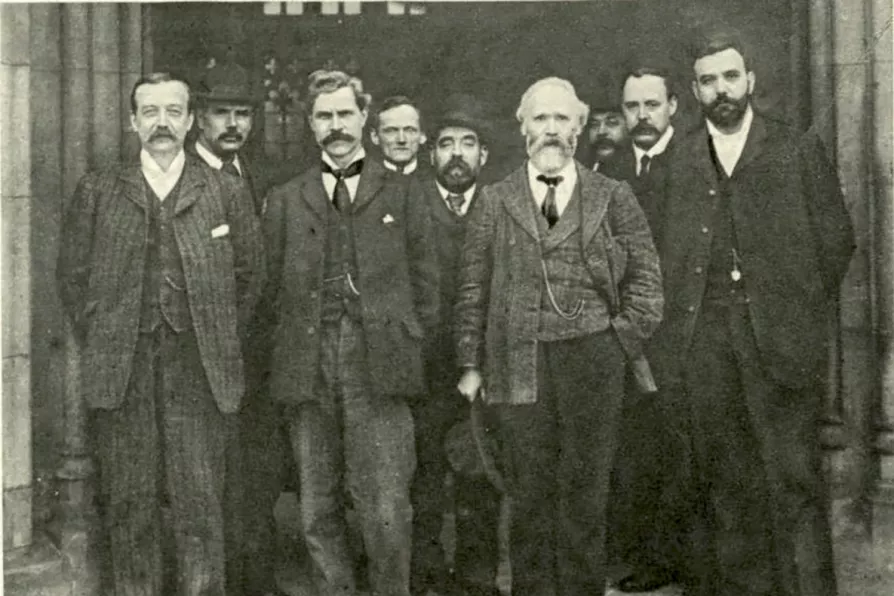This weekend, the NEU holds a special conference to debate changing its approach to organising teaching assistants, which a 2017 TUC agreement forbids. General secretary DANIEL KEBEDE outlines the choices before delegates

 Leaders of the Labour Representation Committee in 1906. From left to right: Arthur Henderson, G N Barnes, Ramsay Macdonald, Philip Snowden, Will Crooks, Keir Hardie, John Hodge, James O'Grady and David Shackleton
Leaders of the Labour Representation Committee in 1906. From left to right: Arthur Henderson, G N Barnes, Ramsay Macdonald, Philip Snowden, Will Crooks, Keir Hardie, John Hodge, James O'Grady and David Shackleton
125 YEARS AGO on February 27 1900, a meeting took place at the Memorial Hall in Farringdon St to form the Labour Representation Committee (LRC).
The building still stands although today it is a modern office with a plaque to mark the founding of the Labour Party. For many years I represented workers there as a union officer.
The meeting marked the start of a decade and more of events that still provide much of the framework for the Labour Party, the labour movement and the left today.

While Hardie, MacDonald and Wilson faced down war pressure from their own Establishment, today’s leadership appears to have forgotten that opposing imperial adventures has historically defined Labour’s moral authority, writes KEITH FLETT

KEITH FLETT traces how the ‘world’s most successful political party’ has imploded since Thatcher’s fall, from nine leaders in 30 years to losing all 16 English councils, with Reform UK symbolically capturing Peel’s birthplace, Tamworth — but the beast is not dead yet

KEITH FLETT revisits the 1978 origins of Britain’s May Day bank holiday — from Michael Foot’s triumph to Thatcher’s reluctant acceptance — as Starmer’s government dodges calls to expand our working-class celebrations











